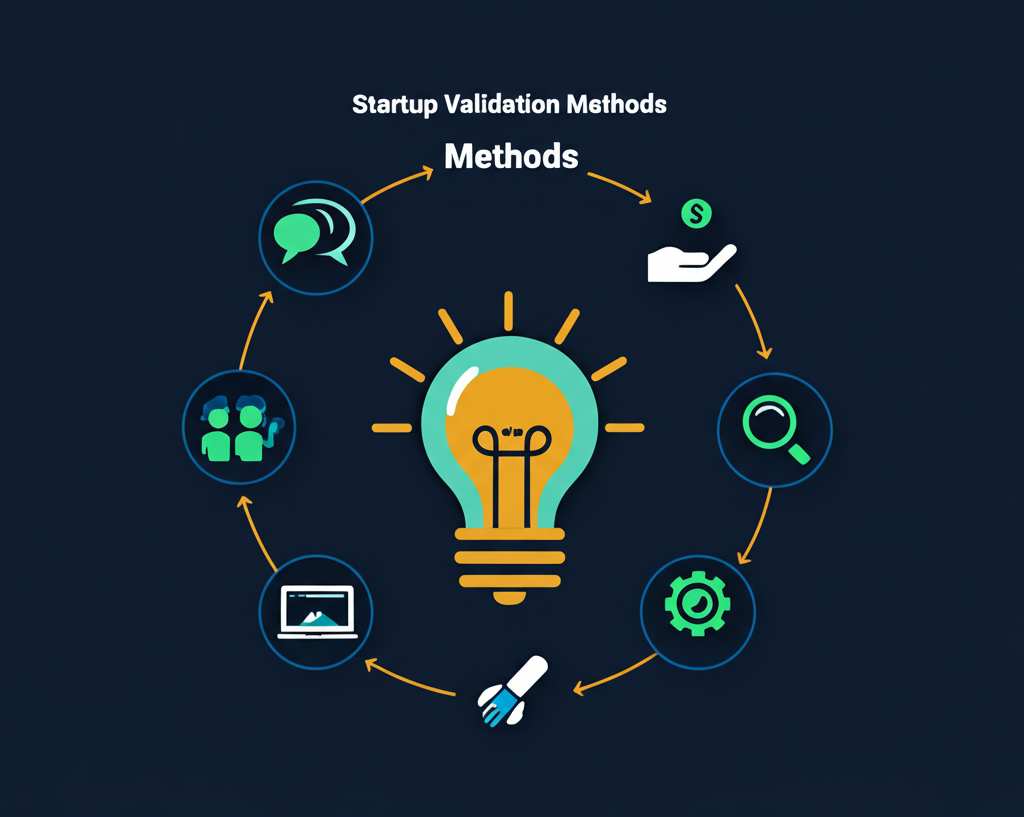
5 Proven Methods for Validating Your Startup Idea
Sarah Johnson
Startup Advisor
Validating your startup idea is a critical step before investing significant time and resources into building a product or service. It helps you determine if there's a real market need for your solution and if customers are willing to pay for it.
Why Validation Matters
According to CB Insights, the number one reason startups fail is that they build something nobody wants. Validation helps you avoid this pitfall by confirming that your idea solves a real problem for a specific audience.
Here are five proven methods to validate your startup idea:
1. Problem Interviews
Start by interviewing potential customers to understand their pain points. The key is to focus on their problems, not your solution. Ask open-ended questions about their challenges, current solutions, and how they feel about them.
Tips for effective problem interviews:
- Aim for 15-20 interviews to identify patterns
- Avoid pitching your solution during this phase
- Listen more than you talk
- Look for emotional responses that indicate pain points
2. Landing Page Test
Create a simple landing page that describes your solution and includes a call-to-action (CTA) like "Join Waitlist" or "Pre-order Now." Drive traffic to this page through targeted ads or social media to gauge interest.
Key metrics to track:
- Conversion rate (percentage of visitors who click your CTA)
- Email sign-ups or pre-orders
- Time spent on page
3. Competitor Analysis
Study existing solutions in your market. If competitors exist, it validates that there's a market for your idea. Look for gaps in their offerings that your solution could fill.
Areas to analyze:
- Features and pricing
- Customer reviews and complaints
- Marketing messaging and positioning
- Market size and growth potential
4. Prototype Testing
Create a simple prototype or mockup of your solution and get feedback from potential users. This could be as basic as sketches or wireframes, or a more interactive prototype depending on your idea.
What to look for during testing:
- Intuitive understanding of your solution
- Excitement about specific features
- Willingness to use or pay for the solution
- Suggestions for improvement
5. Minimum Viable Product (MVP)
Build the simplest version of your product that delivers value and launch it to early adopters. This allows you to gather real usage data and feedback while minimizing development costs.
Tips for an effective MVP:
- Focus on one core feature that solves the main problem
- Be clear with users that it's an early version
- Establish metrics for success beforehand
- Create a feedback loop with users
Conclusion
Validation is not a one-time event but an ongoing process. Use these methods in combination for the most reliable results. Remember, the goal is not to prove that your idea is good, but to determine if it truly solves a problem people care about enough to pay for.
By validating your startup idea before full-scale development, you'll save time and resources while increasing your chances of building something people actually want.